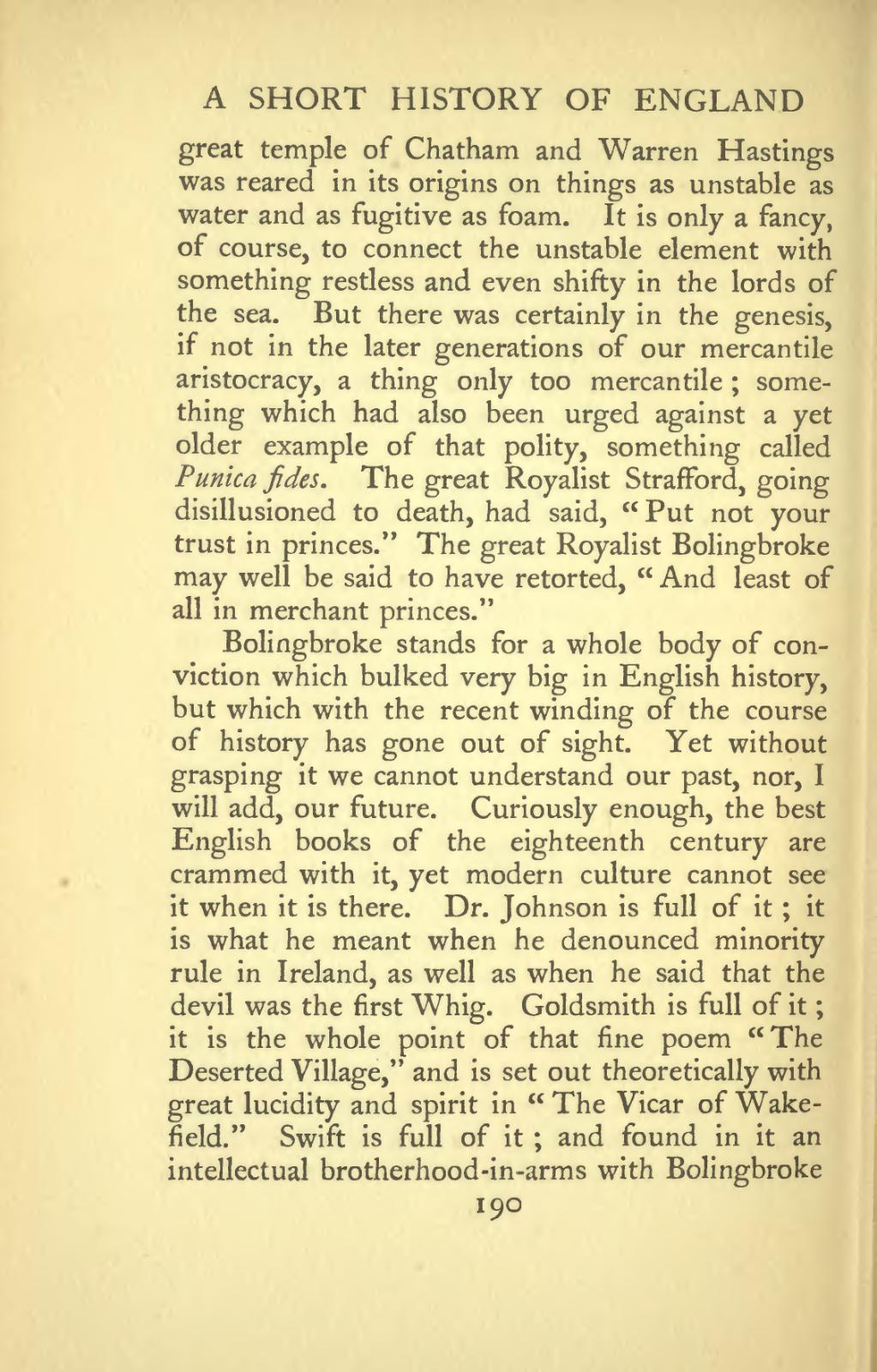great temple of Chatham and Warren Hastings was reared in its origins on things as unstable as water and as fugitive as foam. It is only a fancy, of course, to connect the unstable element with something restless and even shifty in the lords of the sea. But there was certainly in the genesis, if not in the later generations of our mercantile aristocracy, a thing only too mercantile; something which had also been urged against a yet older example of that polity, something called Punica fides. The great Royalist Strafford, going disillusioned to death, had said, "Put not your trust in princes." The great Royalist Bolingbroke may well be said to have retorted, "And least of all in merchant princes."
Bolingbroke stands for a whole body of conviction which bulked very big in English history, but which with the recent winding of the course of history has gone out of sight. Yet without grasping it we cannot understand our past, nor, I will add, our future. Curiously enough, the best English books of the eighteenth century are crammed with it, yet modern culture cannot see it when it is there. Dr. Johnson is full of it; it is what he meant when he denounced minority rule in Ireland, as well as when he said that the devil was the first Whig. Goldsmith is full of it; it is the whole point of that fine poem "The Deserted Village," and is set out theoretically with great lucidity and spirit in "The Vicar of Wakefield." Swift is full of it; and found in it an intellectual brotherhood-in-arms with Bolingbroke
